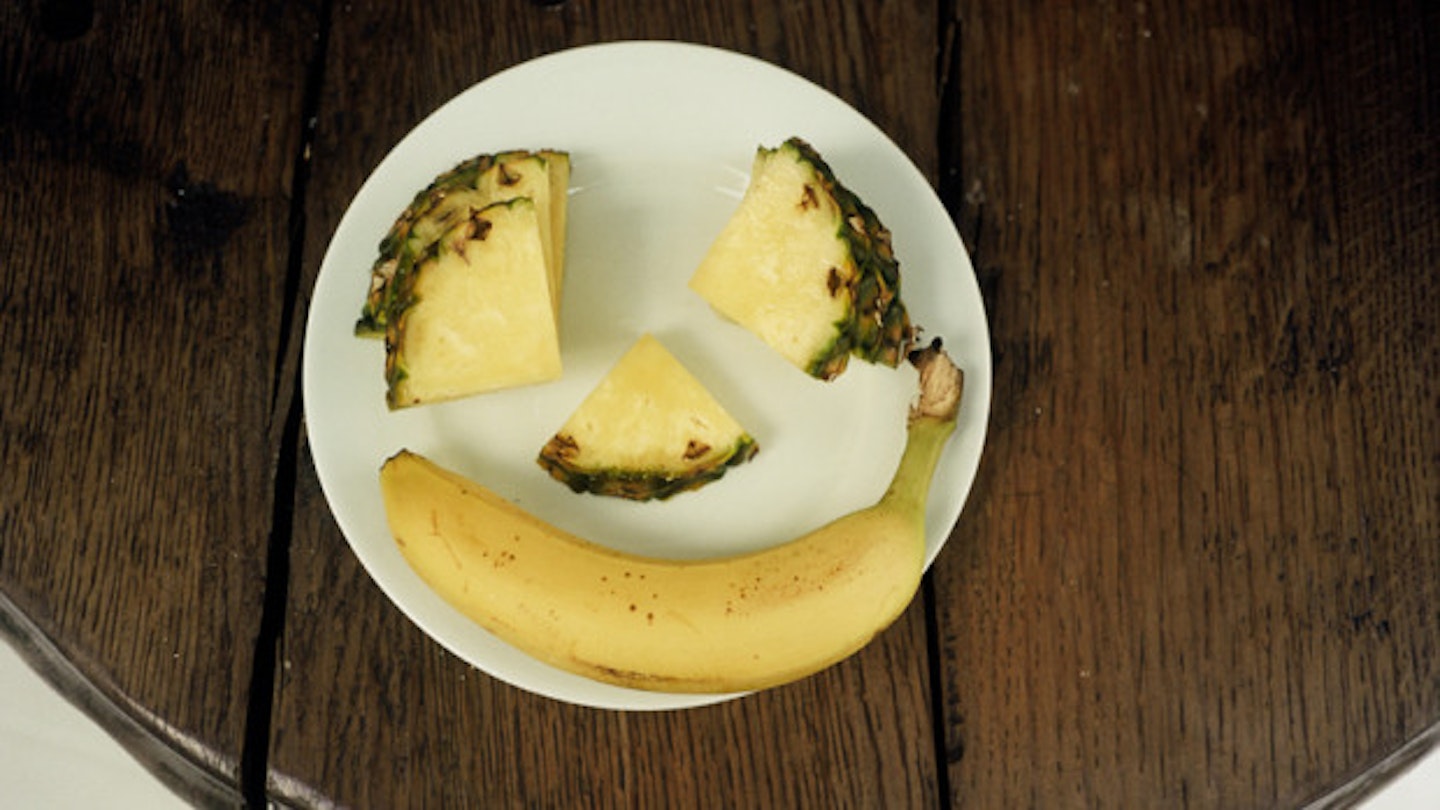I love my friends. The clue’s in the name. They’ve always been amazing – each and every one of them – listening to two-hour long rants about the guy who’s just dumped me, turning a blind eye when I buy the same pair of shoes, lending me a tenner to go to Pizza Express at moments when a La Reine seemed positively unaffordable. But then, two years ago, I gave up eating crap and drinking booze. Whole other ballgame.
While the vast majority were uber-supportive (or just avoided going to dinner or bars with me, which was fine), some were downright demonic about it. Although, I didn’t make a big deal out of it – I thought – a scarce few would take it upon themselves to berate me at the table, telling me ‘life’s too short’ to not have a slice of black forest gateau at their nan’s 70th birthday celebrations (true fact). Or that I wasn’t ordering ‘what I wanted’ when I failed to inhale a bowl of Eton Mess that one buddy chose ‘for us to share’ in a restaurant, despite my protestations that I didn’t want it. It was most odd.
What struck me then, as it does now, is why do some friends behave so weirdly when you go on a health kick? For a select few, my decision to ditch sugar (which I did two years ago and have stuck at) was a virtual punch in the face to our friendship. I felt as if my role in their life had changed. Whereas I was accepted in my previous incarnation as the slightly chubby funny friend who’d go out, get blotto on whisky sours and order a large chips and mayonnaise by 9pm, some mates made me feel less welcome now that I only had one glass of wine and switched to water when were socialising.
Whereas I was accepted in my previous incarnation as the slightly chubby funny friend who’d go out and get blotto on whisky sours some mates made me feel less welcome now that I only had one glass of wine
For example, a much-needed mini-break with a pal – we’d been on holiday previously and got on, btw – turned into a nightmare when I abstained from getting an ice cream from the beach bar for the third day in a row. It sent her over the edge. Likewise, a wedding with another mate ended in tears (mine) when an argument finished with her telling me I was ‘fucking boring’ (I can be, but I wasn’t being so then) because I didn’t want to get totally ruined on bad chardonnay.
I know I sound like a boring cow, but I promise I wasn’t. I’m not someone who needs to get shit-faced to have a good time. I’m more than happy to dance after a couple of vodka lime and sodas (disclaimer: the nightclub must be dark, music good and the dancefloor full) and I can talk crap sober. I never moan about not eating sweet things because it’s not only boring for everyone else, it’s boring for me, and besides which I enjoy my lifestyle, which is why I do it.
While I didn’t understand the reaction from my friends, it did feel oddly familiar. Casting my mind back, I began to recall haranguing a friend who came to the pub and didn’t drink. Or moaning at another who ordered salad in an Italian restaurant when I was having pasta. Perhaps I was just reaping what I’d sown.
So why do we do this to other people? While there’s no doubt that there’s an element of commonality in all of our relationships (in other words, we like people who are similar to us), I didn’t feel that I had changed anything about my personality other than what I shoved in my mouth. So what was going on? In the course of writing my book on giving up sugar, I spoke to psychologist Amanda Hills about it.
‘Food is the major form of social bonding. There’s a sense that, if you don’t get involved, you’re somehow distancing yourself from the sense of celebration'
‘Food is the major form of social bonding,’ says Amanda. ‘It doesn’t just start when we go out to dinners with friends, it starts with our experiences with our parents. There’s a sense that, if you don’t get involved, you’re somehow distancing yourself from the sense of celebration. Indulging in sweet things is a way of showing love or enjoyment the world over. If you choose not to get involved in that, it can cause a negative reaction in people.’
In other words, my abstinence threatened my friends’ ideas of what is 'okay'. ‘Yes,’ she says. ‘It forces them to look at their behaviour and their choices, which is uncomfortable.’ So what happened? Do I even have any friends left? Thankfully, the answer is yes. It got easier. People stopped caring. I made a new normal as mates realised that while I’d given up on sugar, I hadn’t given up on life. So what would I say to the abstainers? Stick with it. Haters gonna hate. After a while your behaviour will form a new normal and everyone will accept it. Ride the storm.
As time went by and I lost weight, my acne cleared up, I was calmer, slept better and was generally happier, and people stopped asking me why I was doing what I was doing. The answer was plain to see, sitting across the other side of the table, jabbering away, or later seen dancing – if you can call it that – badly in the middle of the dancefloor. I’ll give up many things, but never that – no matter how many friends wish I would.
Sweet Nothing: Why I Gave Up Sugar And How You Can Too is out now
Follow Nicole on Twitter @nicolemowbray
Picture: Rory DCS
This article originally appeared on The Debrief.
